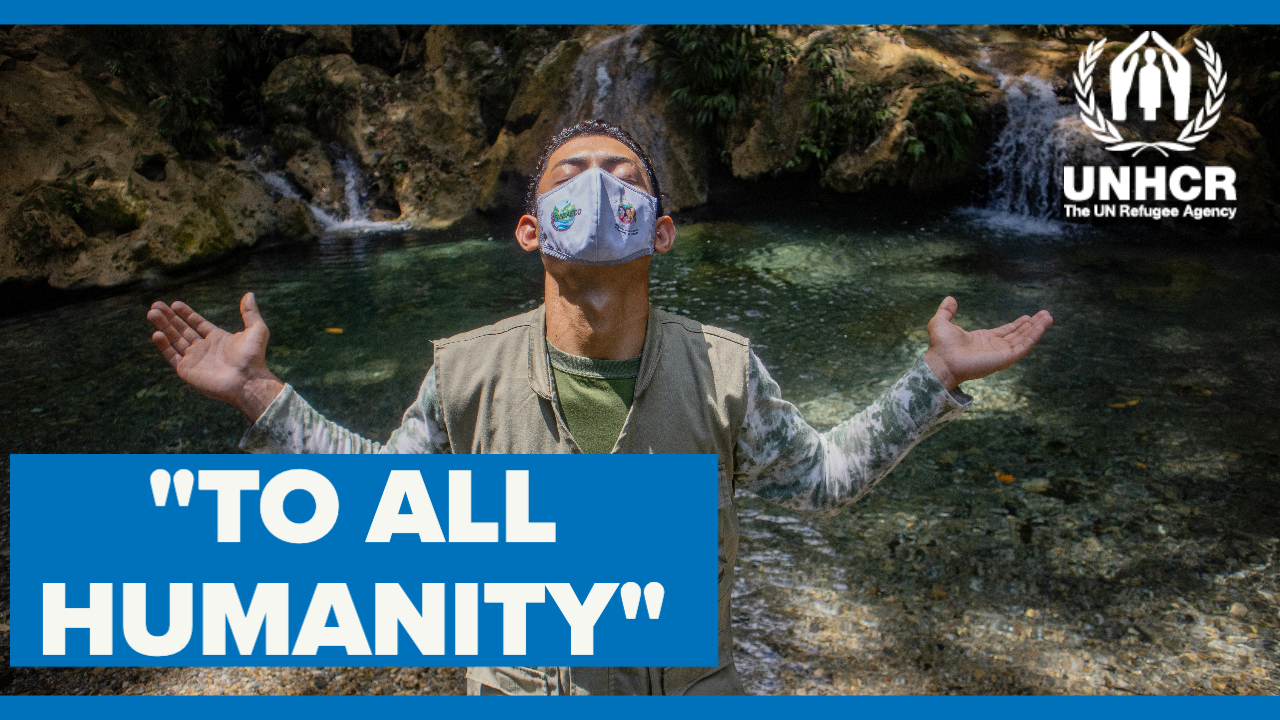The unbreakable Khaled

The unbreakable Khaled
They had already fled the bombs in Dara'a, Syria. Then, one spring morning in April 2013, as 15-year-old Khaled and his family sat down to breakfast, a mortar exploded just metres from where they were sheltering.
"We all went outside to see where the bomb landed," Khaled recalls. "And at that moment a second bomb fell between us."
Khaled lost both of his arms in the blast. Standing beside him, his mother was hit by shrapnel and died instantly. Three of his five sisters also suffered shrapnel injuries.
"I was conscious," he says. "There was blood everywhere, and everyone was screaming. I was looking at my arms and saying to myself: 'This is impossible. I am dreaming.' I still don't believe what happened. Did I really lose my mother?"
Today, as we sit together in Irbid, Jordan, it is hard to imagine what this handsome, smiling teenager – still only 17 years old – has been through. "My life was beautiful in Syria," he tells me. "I had just started work in a clothing business and I had all these great plans for the future. Then the crisis started, and since then it's been one step forwards and 10 steps back."
In late 2012, when the fighting near their hometown of Al-Gharia Al-Gharbia, became too much to bear, Khaled fled to Jordan with his parents and eight siblings. They arrived at Za'atari refugee camp, but his mother, Adeeba, suffered from severe asthma in the dry and dusty conditions. Unable to cope, they made the fateful decision to return home.
A few months later, the family learned that their town was about to come under attack. They moved to a neighbouring village, in an effort to secure their safety, but it was there where the bombs fell on that fateful April morning.
After the explosion, Khaled spent more than a week in a local hospital in Dara'a. There, medical staff could do little more than stitch his wounds, so the family returned to Jordan and Khaled and his sisters were transferred to a hospital in Irbid, where they could receive the specialist treatment they needed.

Following a week of intensive treatment, Khaled was discharged. The search was now on for donors who could provide him with prosthetic arms.
The first pair he received came from a Gulf-based donor, but he found the silicone-filled limbs too heavy for his weakened muscles and eventually returned them. He was then referred to a rehabilitation clinic in downtown Irbid, run by the non-profit German-Syrian Association, which gave him new prostheses. Now, he receives physiotherapy there three times a week.
"I was looking at my arms and saying to myself: 'This is impossible. I am dreaming.' ”
With his two elder sisters and an older brother married and living elsewhere, Khaled shares a small, three-room apartment in Irbid with his father, three sisters and two brothers. He describes their financial situation as very difficult, having to rely on World Food Programme vouchers to eat and struggling to find enough money for rent and bills each month.
An assessment last year determined that the family would receive UNHCR cash assistance of 120 JOD (US $170) per month, but funding shortfalls meant they only started receiving the money in August. A total of 22,500 Syrian families in Jordan currently benefit from UNHCR monthly cash assistance, with a further 9,750 families on the waiting list due to a lack of available funds. UNHCR’s current Lifeline appeal has so far raised US $4.7 million, enough to provide assistance to 3,100 families, but more funding is desperately needed.
While the assistance will help to relieve some of the financial strain on the family, Khaled is still coming to terms with the day-to-day challenges posed by his injuries. "I've had to adjust to a new life, and find a way of living that fits my new situation," he says. "I never dreamed that I would lose my arms, but getting depressed won't bring them back."
Khaled has learned to do as much as he can on his own, including – like any typical teenager – sending and receiving a steady stream of text messages on his phone, and fielding frequent calls using a wireless headset.

Most evenings, Khaled hangs out with friends and surfs the Web. Sometimes, he visits downtown Irbid to share the occasional argileh, a scented-tobacco water pipe. He has also kept up his hobby of making music videos on his laptop to accompany popular Arabic songs, although his computer was recently damaged and is now out of action.
For some things, such as eating and dressing, he relies on help from his father and younger sisters. But he won't allow them to see him as dependent.
"My family don't treat me as a disabled person. They treat me normally," he says. "If I see them feeling sad for me, I make jokes and laugh with them to show them I'm okay."
"I want to open a clothing shop, find a wife who will support and stand by me, and start a family."
The clinic has given him a new, lighter pair of prosthetic arms, but they are just for appearances and don't allow him to grip objects as he would like. Most of the time they are left in a case in the corner of the bedroom he shares with his brothers. What he craves are intelligent electronic prostheses that would give him greater independence. But given the cost – many thousands of dollars – he knows the prospect remains slim.
Nevertheless, Khaled refuses to give up hope. "Getting new arms is now the first step of achieving my dreams, so I can restart my future and my work. I want to open a clothing shop, find a wife who will support and stand by me, and start a family."









